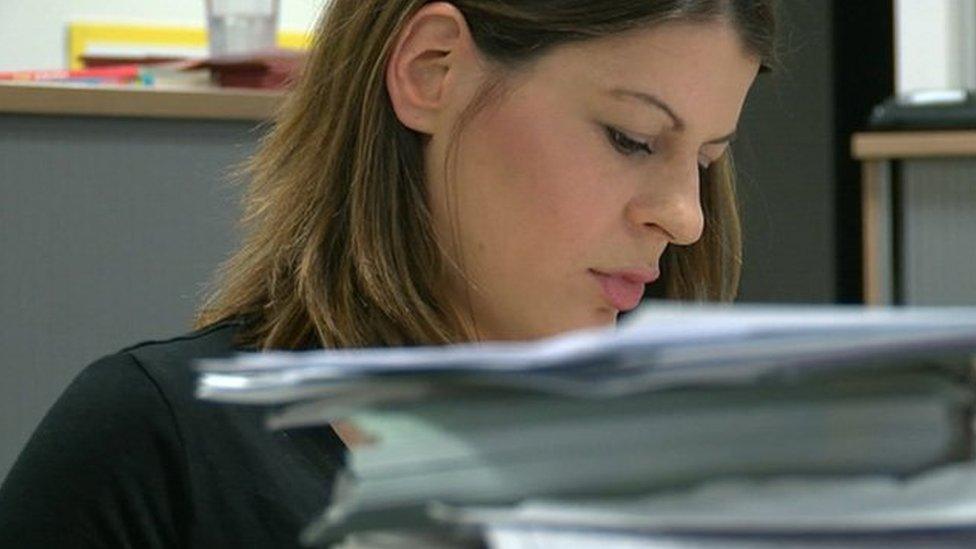Brexit: Women 'more vulnerable' to impact of leaving EU
- Published
Catherine Fookes fears more women will go out of work after Brexit.
Women in Wales are "more vulnerable" to the impact of Brexit than women in other parts of the UK, according to an equality body.
The Women's Equality Network Wales, external said losing EU funding threatens schemes aimed at improving workplace equality.
Director Catherine Fookes also fears a "fragile" Welsh economy risks jobs.
But Liz Bilney, chief executive of the Brexit campaign group Leave.EU, external, said it could be a "very exciting time for women" with "lots of opportunities".
'Really dangerous'
Speaking to the BBC's Sunday Politics Wales programme, Ms Fookes said she was concerned about Brexit because Wales had a "much bigger injection of cash" from the EU than other parts of the UK.
"Part of that is the European Social Fund, and that helps women get out of poverty and get more skills so they can progress in their careers," she said.
"So when that disappears it's going to be really difficult for women in Wales.
"The second reason is our economy in Wales is fragile - we have lower productivity - and women tend to be working in low-paid jobs, in part-time jobs, on zero-hours contracts.
"Any contraction of the economy could be really dangerous for women's jobs."
Part-time work makes up 42% of female employment in Wales, compared to 12% for men.
The UK government has previously said protections in equality legislation will continue to apply post-Brexit and the UK "will continue to address discrimination in all its forms".
The government said it is committed to "ensuring women have the same opportunities as men to fulfil their potential in the workplace".

'Old boys' club'
Agile Nation 2 is a £12m scheme, part-funded by the EU, which aims to address gender inequality in the workplace.
The programme is expected to offer support to 500 Welsh businesses and help 2,750 female employees develop their careers free of charge.
Magenta Financial Planning in Bridgend has accessed the services on offer.
Julie Lord, the firm's chief executive, said: "It's focused our thinking on making sure we've get everything properly organised.
"It's certainly helped us with our equality and diversity policy.
"These programmes are specifically aimed at looking at that gender bias and, if that goes, then we might just be back to the old boys' club."

Liz Bilney, of Leave.EU, said there are opportunities for women in Brexit
However, Ms Bilney was more positive about the prospects for women when the UK leaves the European Union.
"I think there are lots of opportunities from Brexit all around," she told the programme.
"I think it could be a very exciting time for women.
"We always lead when it comes to women's rights and equality," she added.
"I would suggest that we'd probably look for ways to increase funding and to give it directly to women instead of having to channel it through the EU."
Asked about the fragility of the Welsh economy, Ms Bilney said there could be more jobs available for women post-Brexit because people would be returning to other EU countries.
"There's an opportunity for women there to take on more jobs and to take on additional salaries," she said.
Sunday Politics is on BBC One Wales at 11:00 BST on Sunday 8 October and on the BBC iPlayer.
- Published28 September 2017

- Published28 August 2017

- Published19 July 2017

- Published10 August 2017
